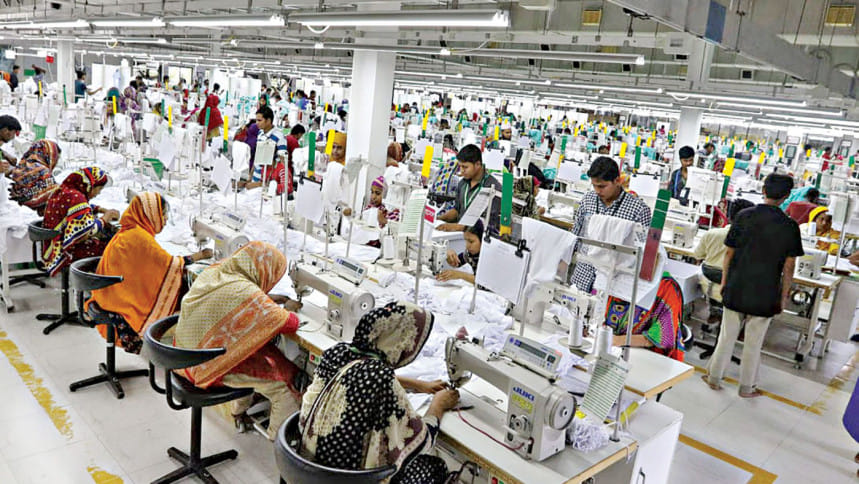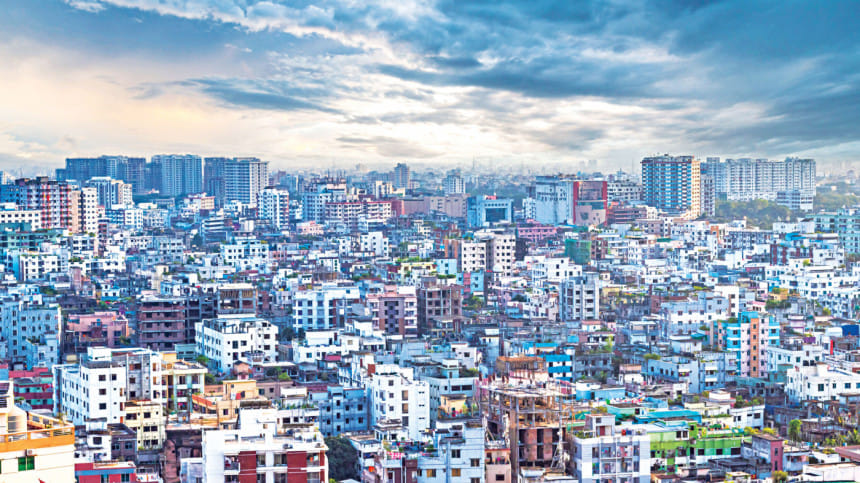Beyond RMGs: Why Bangladesh is emerging as Asia’s next startup hotspot

For decades, headlines surrounding Bangladesh have largely focused on its challenges: poverty, natural disasters, and the struggles of a developing economy. While these realities remain, a new narrative is quietly unfolding, driven by resilience, innovation, and an economic trajectory that has surprised many.
For savvy investors seeking the next frontier for high-growth opportunities, Bangladesh offers a compelling proposition that deserves a closer look.
The history of our economic growth
The development of Bangladesh post-independence is a saga of resilience, transformation, and relentless pursuit of progress amidst myriad challenges. Following its bloody separation from Pakistan in 1971, Bangladesh embarked on a tumultuous yet transformative journey that has reshaped its identity from a war-torn fledgling nation to a burgeoning economy poised to become the next Asian Tiger.
The immediate post-independence era was marked by the Herculean task of rebuilding a nation devastated by war. Bangladesh set forth on its path to reconstruction, focusing on the rehabilitation of millions of war-affected people, restoring infrastructure, and establishing the foundations of a new state. The 1972 constitution laid down the principles of nationalism, socialism, democracy, and secularism, aiming to guide the nascent republic towards inclusive development.
The initial years were fraught with economic challenges, including severe food shortages and a reliance on international aid. The political landscape was equally unstable, characterised by coups and assassinations that led to military rule. Despite these adversities, Bangladesh showed early signs of resilience, focusing on agricultural self-sufficiency, rural development, and small-scale industries.
The 1980s and 1990s saw a gradual shift towards economic liberalisation, with policies aimed at encouraging private investment, both domestic and foreign. The introduction of structural adjustment programs, in partnership with international financial institutions, aimed to revitalise the economy through deregulation, privatisation, and reduced government intervention. This period also saw significant strides in social development, particularly in health and education, largely driven by innovative NGO initiatives.
Entering the 21st century, Bangladesh began to witness accelerated economic growth, driven by a booming garments industry, remittances from overseas workers, and a burgeoning services sector. The country embraced globalisation, becoming a key player in the global supply chain, particularly in textiles, which emerged as a cornerstone of its economy.
The last decade has seen Bangladesh adopting ambitious visions to become a middle-income country by 2021 and a developed country by 2041. Under the banner of "Digital Bangladesh," the government has prioritised IT and telecommunications infrastructure, aiming to leverage digital technology for economic growth and governance.

Economic dynamism with untapped potential
Bangladesh's economic story is one of resilience and sustained growth. Despite global uncertainty, its USD 460 billion GDP, the second-highest in South Asia, has witnessed an impressive 7.1% growth rate. This momentum is expected to continue, with projections exceeding 5.8% through 2030. Moreover, its GDP per capita of USD 2,688 surpasses the South Asian average, signifying a prosperous and growing consumer market.
Adding to this dynamism is a young and tech-savvy population. At 171 million strong, it ranks eighth globally, with 62% under 35 years old. By 2030, this demographic is projected to make Bangladesh the world's 9th largest consumer market.
With such impressive feats, Bangladesh is steadily positioning itself as the next Asian Tiger economy, fueled by a combination of robust economic fundamentals, strategic government initiatives, and a dynamic, youthful population ready to embrace innovation and entrepreneurship. The country's consistent GDP growth, even amidst global economic uncertainties, stands testament to its economic resilience.
Moreover, Bangladesh's strategic focus on key sectors such as garments, financial services, and education, alongside rising investments in healthcare and digital finance, reflects a diversified approach to economic development. The active involvement of both local and international investors, buoyed by government policies aimed at easing business operations, further cements the foundation for sustainable economic growth. With the vision to nurture innovation, attract funding, and streamline business processes, Bangladesh is not just navigating through current global economic challenges but is also laying the groundwork for becoming an economic powerhouse in Asia
Bangladesh is also embracing the digital age with gusto. 126 million mobile internet subscribers and a 75% penetration rate create a fertile ground for innovation. This, coupled with 69% of unbanked adults owning mobile phones, points to the immense potential of mobile financial services to drive financial inclusion. Positive indicators within Bangladesh's digital finance ecosystem highlight a strong commitment to fostering inclusive growth in this critical area.
Recognizing the potential of startups, the Bangladeshi government has taken proactive steps to nurture the ecosystem. Initiatives like the Innovation Design and Entrepreneurship Academy (iDEA) and Startup Bangladesh Limited provide training, mentorship, and financial assistance to aspiring entrepreneurs. Additionally, a planned fund of funds and the Startup National Policy aim to further enhance access to capital and streamline business processes. This comprehensive approach demonstrates a clear commitment to fostering innovation and attracting investment.
Investment potential: Unveiling untapped opportunities
The potential for high-growth returns in Bangladesh's startup scene is significant. By 2030, Bangladeshi startups are projected to raise over USD 2.5 billion annually. This is fueled by government support, a thriving local ecosystem, and an ambitious goal of nurturing five unicorns by 2025. Improved ease of doing business, BRICS involvement, and a national startup policy are further attracting global attention. With a projected GDP per capita reaching USD 14 by 2030, Bangladesh is poised to become a major investment hub.
If we look at the past year, Bangladesh's startups raised $72 million across 45 deals in 2023, indicating a shift in the investment landscape amidst economic uncertainties. The participation of venture capital and the notable entry of local conglomerates into the startup investment domain signify a diversifying investor base and an increasing recognition of the sector's potential.
The financial services, garments, and education sectors led investment activities, securing significant funding despite the overall downturn. This trend highlights the evolving maturity and resilience of specific sectors within the ecosystem. Startups such as ShopUp, Nitex, 10 Minute School, Arogga, and Jatri stood out, collectively attracting significant investment, underscoring the enduring appeal of Bangladeshi startups to both local and international investors.
The Bangladeshi government's proactive approach to nurturing the startup ecosystem, exemplified by initiatives such as the Fund of Funds and the Startup Summit, plays a crucial role in sustaining startup growth. The increasing involvement of local investors reflects a growing confidence in the sector, which is pivotal in maintaining momentum amidst global economic headwinds.
Diverse sectors poised for disruption
While the garment industry remains a vital part of the economy, the startup landscape offers diverse opportunities across various sectors. Fintech, with its large unbanked population and smartphone penetration, presents immense possibilities for innovative financial solutions. Agritech holds promise for improving efficiency, yield, and market access for farmers. The booming e-commerce sector demands solutions in logistics, marketplace platforms, and digital payments. Healthcare, seeking affordable and accessible solutions, opens doors for telemedicine, AI-powered diagnostics, and digital health innovations. Renewable energy, driven by climate change concerns, creates opportunities for solar, wind, and bioenergy solutions.
Beyond the headlines, Bangladesh is quietly transforming into a dynamic player in the Asian startup scene. Its robust economy, young population, government support, and diverse sectors poised for disruption paint a compelling picture for investors seeking high-growth potential. As Bangladesh steps out from the shadows of its past narratives, it's time to recognize its emergence as a potential powerhouse in the Asian startup ecosystem.
Zarif Faiaz is the In-Charge at Tech & Startup section.

 For all latest news, follow The Daily Star's Google News channel.
For all latest news, follow The Daily Star's Google News channel. 



Comments